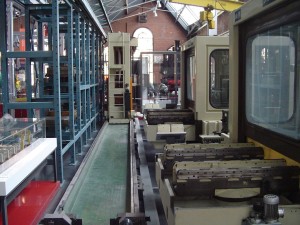 Flexible manufacturing systems are becoming more and more popular. As the name suggests, it revolves around the key principle of flexibility, allowing the system to react when changes are identified. To learn more about flexible manufacturing systems, as well as their advantages and disadvantages, keep reading.
Flexible manufacturing systems are becoming more and more popular. As the name suggests, it revolves around the key principle of flexibility, allowing the system to react when changes are identified. To learn more about flexible manufacturing systems, as well as their advantages and disadvantages, keep reading.
What is Flexibility?
When speaking in the context of manufacturing, flexibility is a catch-all term that’s used to describe a manufacturing system’s ability to make adjustments to better handle nuances like mixed parts, variations in assembly, variations in process sequence, production volume changes, design changes, and other changes.
In essence, a FMS is a method used to manufacture and product goods that is able to adapt to changes. Whether these changes involve the addition of a new product types, the modification of existing product types, etc., a FMS can handle these and more. It provides manufacturing companies with a sharp competitive edge over their counterparts who do not use such flexible systems. Even so, however, there are both pros and cons associated with FMS.
FMS: Two Categories of Flexibility
The flexibility of a FMS typically falls into two categories: machine flexibility and routing flexibility. Machine flexibility refers to the system’s ability to produce new types of products, and its ability to change the order in which operations are executed.
The second type of flexibility in a FMS, routing flexibility, refers to the system’s ability to use two or more machines to perform the same task, and the system’s ability to handle large-scale changes like significant increase in volume and/or capability.
Industrial FMS
There are also industrial flexible manufacturing systems, which differ in the sense that they feature robots and computer-controlled machines. Many industrial companies and manufacturing companies are now using robots in their day-to-day operations. Robots automate many otherwise small and tedious tasks, while in turn increasing productivity and efficiency. This trend has resulted in a surge of popularity surrounding industrial FMS.
Advantages of FMS
Some of the advantages associated with FMS include reduced manufacturing cost, increased labor productivity, increased machine efficiency, improved product quality, increased system reliability, reduced parts inventory, shorter lead times, and increased production rate.
Disadvantages of FMS
On the other hand, some of the disadvantages associated with FMS include a high initial set up cost, increased difficult in pre-planning, requirements of skilled workers, and a more complicated system.
